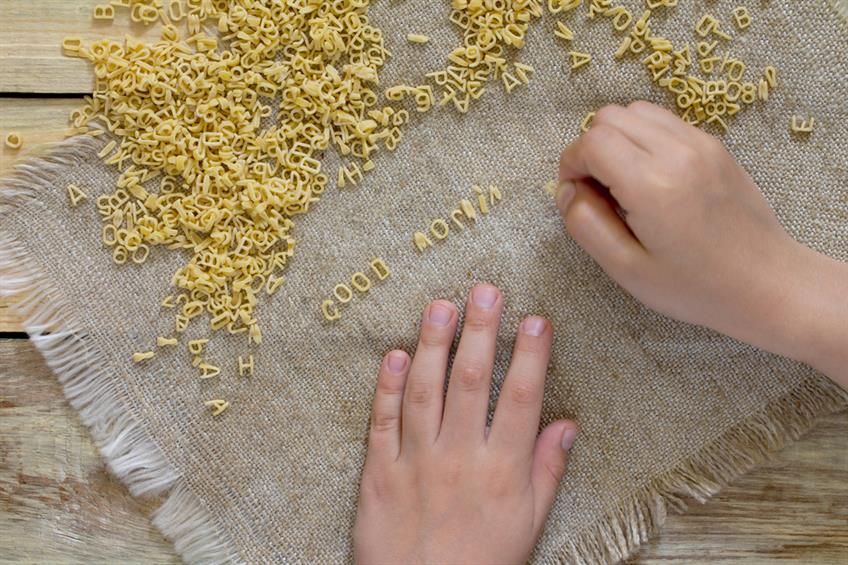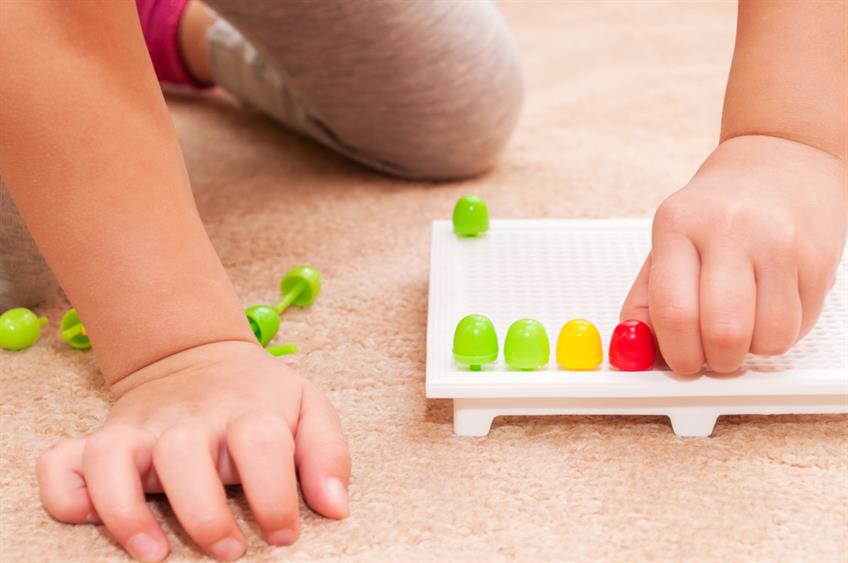Blog Layout
Speech and Language Milestones in Children

Speech and language development is important for reading, writing, and learning. Early identification of challenges leads to early treatment and better outcomes in school. The following are standard milestones and may indicate a speech or language disorder. If you have concerns, see your healthcare practitioner or Contact Our Office to arrange an assessment.
By 6 Months
- Turns eyes or head toward a sound.
- Watches your face when you speak.
- Smiles and laughs in response to your smiles and laughs.
- Has different cries for different needs.
- Makes sounds and/or moves body in response to you.
By 9 Months
- Responds to his/her name.
- Babbles e.g., bababa, mamama.
- Plays social games with you, e.g., peek-a-boo.
By 12 Months
- Follows simple one step directions, e.g., "come here."
- Brings toys to show you.
- Looks across the room to something you point to.
- Gives familiar object on verbal request.
- Points to things he/she wants.
- Uses gestures, e.g., waving "bye-bye."
- Gets your attention using sounds, and gestures, while looking at your eyes.
By 18 Months
- Identifies several body parts when asked.
- Points to pictures using one finger.
- Says approximately 20 words consistently.
- Understands basic concepts such as, "in/out", "off/on."
- Pretends to feed a doll/teddy bear or pretends a bowl is a hat.
- Uses at least 4 consonant sounds, e.g., /p,b,m,n,d,g,w,h/.
By 2 Years
- Combines at least 2 words, e.g., "car go."
- Follows 2 step directions, e.g., "go find your blankie and show it to daddy."
- Uses at least 100 words, including action words, e.g., "eat, go, fall."
- Enjoys playing with other children.
- Puts together two pretend play actions, e.g., tucking doll into bed and saying goodnight.
By 3 Years
- Understands simple who, what, where, & why questions.
- Creates long sentences combining at least 5 words.
- Uses adult-like grammar, such as plurals, and past tense verbs, e.g., cookies, I jumped, mommy's shirt.
- Can engage in a short conversation.
- Speech is understood approximately 75% of the time.
- Engages in pretend play with others using many actions, e.g., having a tea party.
By 4 Years
- Follows 3 step directions, e.g., "finish your snack, bring your bowl in the kitchen, and put it in the sink."
- Uses sentences with adult-like grammar, e.g. "We're going to the store now."
- Tells a story.
- Speech is understood by unfamiliar listeners the majority of the time.
- Can act out different roles with their friends, e.g. shopping in the grocery store.
If a Child Is Experiencing Any of the Following at Any Age, Seek Further Assessment
- Problems with chewing or swallowing.
- Stuttering
- Ongoing hoarse voice.
- Has lost words he/she used to say frequently.
- Limited interest in toys and/or plays with them in an unusual way.
Adapted from Ontario Ministry of Children and Youth Services.
Related Posts

By info
•
26 Sep, 2019
While all children develop differently, there are a number of milestones that may indicate your school-aged child is having difficulty with fine motor skills and would benefit by seeing an Occupational Therapist for an assessment and therapy, or intervention, plan. If you have a concern, consult your healthcare practitioner, or contact [insert link] our office for more information or to arrange an assessment.

By info
•
25 Sep, 2019
While literacy includes reading and writing skills, it also involves a relationship with expressive language (communication). Many of the same basic skills needed for oral language are also needed for written language, with the addition of some higher-level skills. Early indicators a child may have difficulty with literacy: Family history of reading disability. First word not produced until after 15 months of age. Words not combined until after 24 months of age. Difficulty pronouncing words when older than 6 years of age. Lack of awareness and ability to use rhymes during preschool years. Inability to segment words into syllables after age 5.
Get in Touch
Contact Us
Thank you for contacting us.
We will get back to you as soon as possible.
We will get back to you as soon as possible.
Oops, there was an error sending your message.
Please try again later.
Please try again later.
Our Partners
-

Slide title
Write your caption hereButton -

Slide title
Write your caption hereButton -

Slide title
Write your caption hereButton -

Slide title
Write your caption hereButton -

Slide title
Write your caption hereButton -

Slide title
Write your caption hereButton -

Slide title
Write your caption hereButton
Site Links
Creative Therapy Associates
Our team specializes in speech and language therapy, and occupational therapy for children, adults, and seniors. Our offices are in Thunder Bay, Ontario, but we travel to communities in Northwestern Ontario.
© 2024
All Rights Reserved | Creative Therapy Associates and Creative Therapy Autism Centre
Terms | Privacy | Patient Bill of Rights (PDF)

